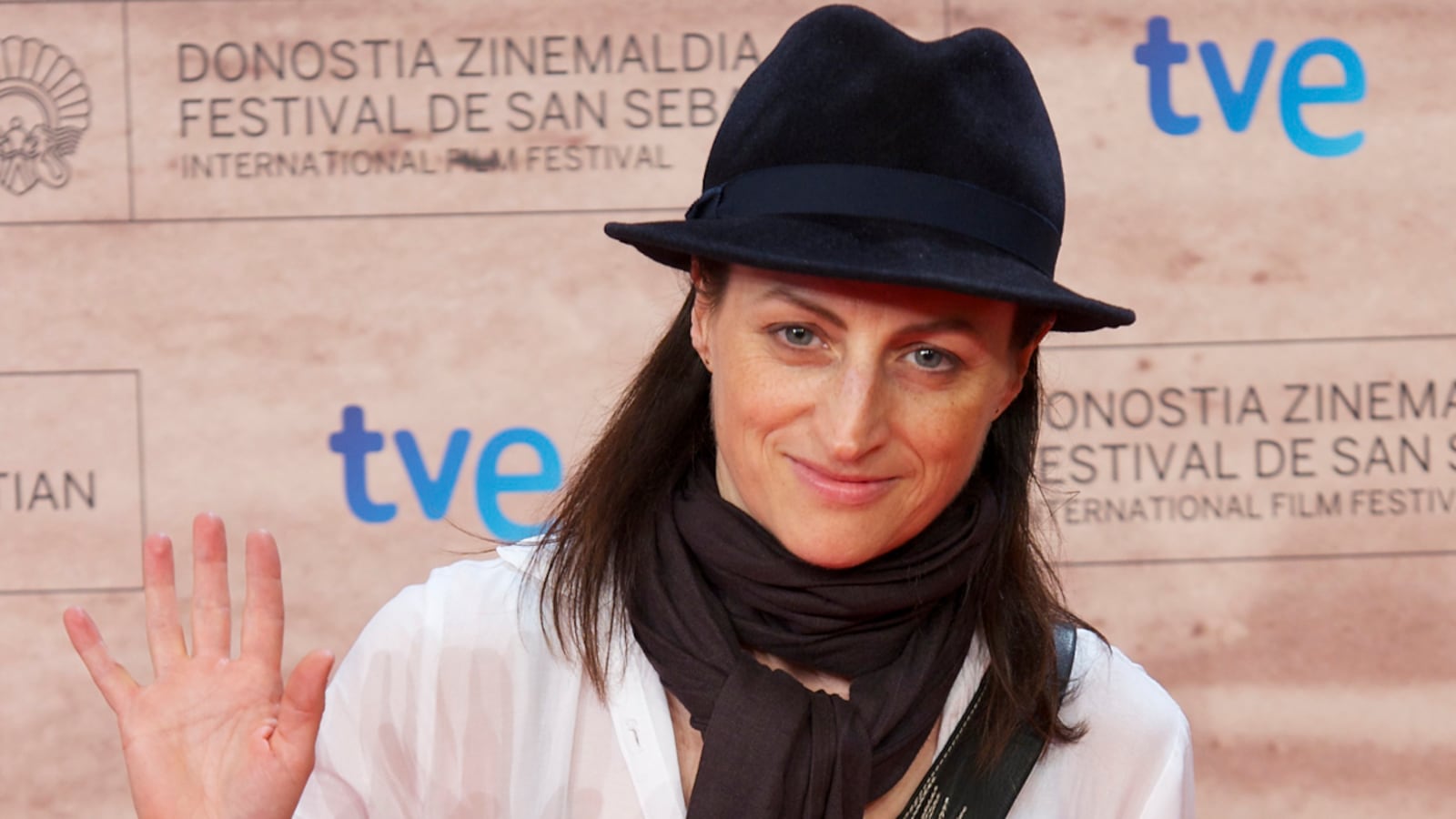The San Sebastian International Film Festival may not have the profile of Cannes or Sundance, but insiders know that it is one of the world’s most inviting festivals. Set in a spectacular seaside town in northern Spain known for its world-class Basque cuisine, the festival always showcases a sterling selection of new films from around the world. Equally impressive is its classic programming. Director Ami Canaan Mann, who visited San Sebastian this year to present her new film, Texas Killing Fields, says, “I can’t think of any American festival that has such extensive retrospectives.”
This year San Sebastian showcased a series titled “American Way of Death: American Film Noir 1990-2010.” Although the series undoubtedly reflected Europeans’ views of American preoccupation with violence, it was a wide-ranging and impressive selection of 40 films, including two from Ami’s father Michael Mann (Heat and Collateral), the Coen brothers’ Miller’s Crossing and Fargo, David Fincher’s Seven and Zodiac, Quentin Tarantino’s Reservoir Dogs, Curtis Hanson’s L.A. Confidential, Clint Eastwood’s Mystic River, and Sidney Lumet’s last film, Before the Devil Knows You’re Dead. Texas Killing Fields, about a series of murders of young women in Texas, was the only new film in the series, and it opened the retrospective. “I was incredibly honored to be chosen,” Mann says. “I’ve always loved the genre.” After its festival screenings in Venice and San Sebastian, the movie opens in the U.S. on Oct. 14.
Back in Los Angeles to promote the movie, Mann spoke about discovering the story. Ten years ago, her father developed the script with screenwriter Don Ferrarone, who heard about the crimes in Texas when he was working as a DEA agent. (He later switched careers and has worked as a consultant or producer on such movies as Miami Vice, Man on Fire, and Déjà Vu.) But the project languished until Ami decided to revive it. She secured financing once Sam Worthington agreed to star as one of the detectives investigating the murders. Worthington persuaded his co-star from The Debt, this year’s “It” girl Jessica Chastain, to take a supporting role as his ex-wife and fellow cop.

Mann was haunted by photographs of the 50 women whose bodies were discovered outside Texas City, Texas. She explains, “In many cases, all they had were school photographs of these young girls, smiling and looking straight at the camera. Some of the victims have never been identified, but they are all daughters and sisters.” While the women were the victims of a number of different killers, Mann and Ferrarone knew they needed to provide a plot that would link several of the murders to one killer, providing the framework of a whodunit without oversimplifying the case. So they created the character of one young girl in jeopardy, played by Chloe Grace Moretz, to provide an audience focus for all the forgotten victims. “I wanted to give a face and voice to the victims,” Mann says, acknowledging that this gives the film a different feeling from many crime films made by men. She also wanted to avoid depicting the murders in a grisly way. “I wanted to be more evocative,” she explains, and she says that her chief influences were more atmospheric thrillers, like Peter Weir’s Picnic at Hanging Rock and Nicolas Roeg’s Don’t Look Now.
“Peter Weir takes a stone cliff and brings it to life,” Mann explains. “I wanted to do the same thing with the swamps in Texas where many of the bodies were found. I was very lucky to find the location. We just happened to turn off on a weird road and found all these tree stumps in a swamp that had once been a forest.” One of the strongest elements in the film is the haunting depiction of this ravaged landscape.
In some ways, Texas Killing Fields was a family affair. Her father was one of the producers, and her half-sister, Aran Reo Mann, was the production designer who helped Ami to find the eerie locations and construct the beautifully detailed sets. Both of them made important contributions. “It was a unique advantage having Michael as a producer,” Ami says. “He needed to make decisions on budget, but he could step outside that and see things as a director would.” As for Aran Mann, who also worked on Miranda July’s first feature, Me and You and Everyone We Know, Ami says, “She’s a brilliant, quiet force of nature. She catches nuances and details that many people would not see.”
In the history of film, it is hard to think of many other father-and-daughter directing teams, perhaps in part because there are very few women directors. Anjelica Huston did direct a couple of films after her father, John Huston, died. While Ami Mann may have had the advantage of her father’s connections, she grew up a long way from Hollywood. Her mother divorced Michael Mann in 1971, not long after Ami was born, and Ami moved with her mother to Dayton, Ind., where she spent her childhood. “It was a town of only 1,000 people,” Ami says. “There was no movie theater in town and only one TV station. My passion was photography when I was growing up. I also played the viola, and I did a lot of reading and writing.”
When she was 16, she went to California to spend the summer with her father. “My father said to come out and work on Crime Story, which he was producing for television,” Mann recalls. “He said they could pay me $40 a week, which sounded like a lot of money at the time. That experience helped me to imagine I might have a future in film. It seemed to be a way to put together all my interests—photography, music, and writing.” Ami went to film school at USC, and a few years later, she worked on her father’s film, Heat, starring Al Pacino and Robert De Niro. She spent a year and a half working in various capacities on that production. “Watching him make a film was an education,” Ami says. “I could feel the dedication and craft that went into that movie.”
In a town crowded with second- and third-generation filmmakers, Mann is well aware that she could be considered just the latest beneficiary of Hollywood nepotism. “You can’t really control what people will say about you,” she replies when asked how she combats skepticism in the press or in the industry. Eventually she got writing and directing gigs of her own on TV series NYPD Blue and Friday Night Lights and directed a low-budget feature called Morning in 2001.
Texas Killing Fields demonstrates an impressive command of the medium on a modest budget, and although the film is probably too dark to snare a large audience, it should enhance Mann’s reputation. She has written a couple of new scripts, and she hopes to direct one about a musician. “It has no murders and no crime,” she says with a smile.






